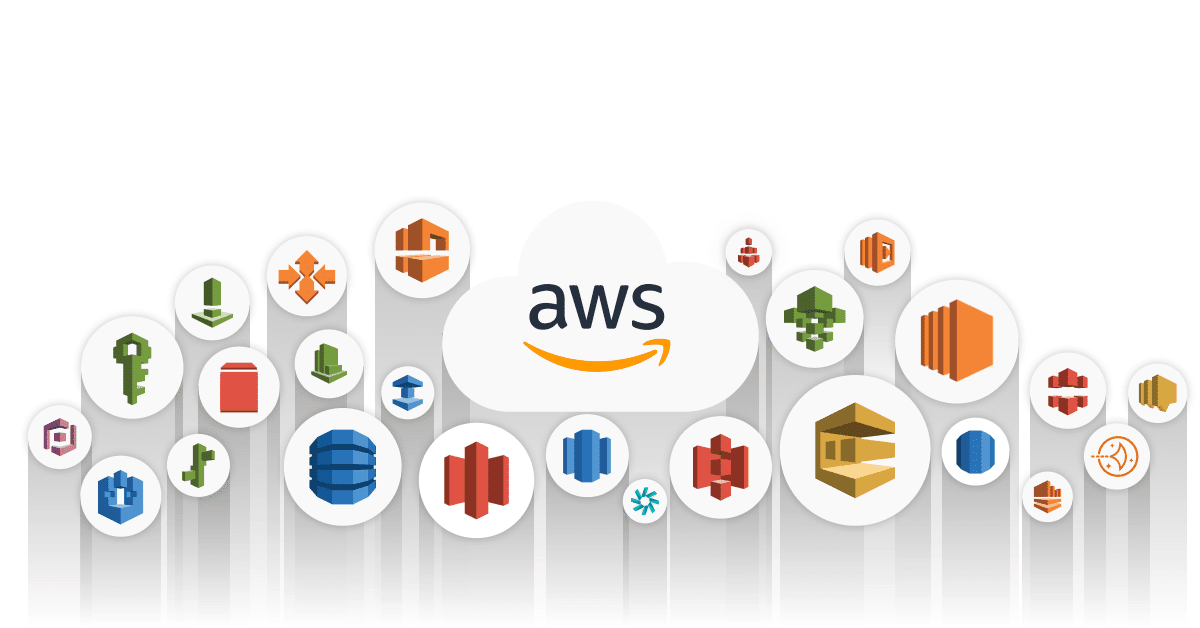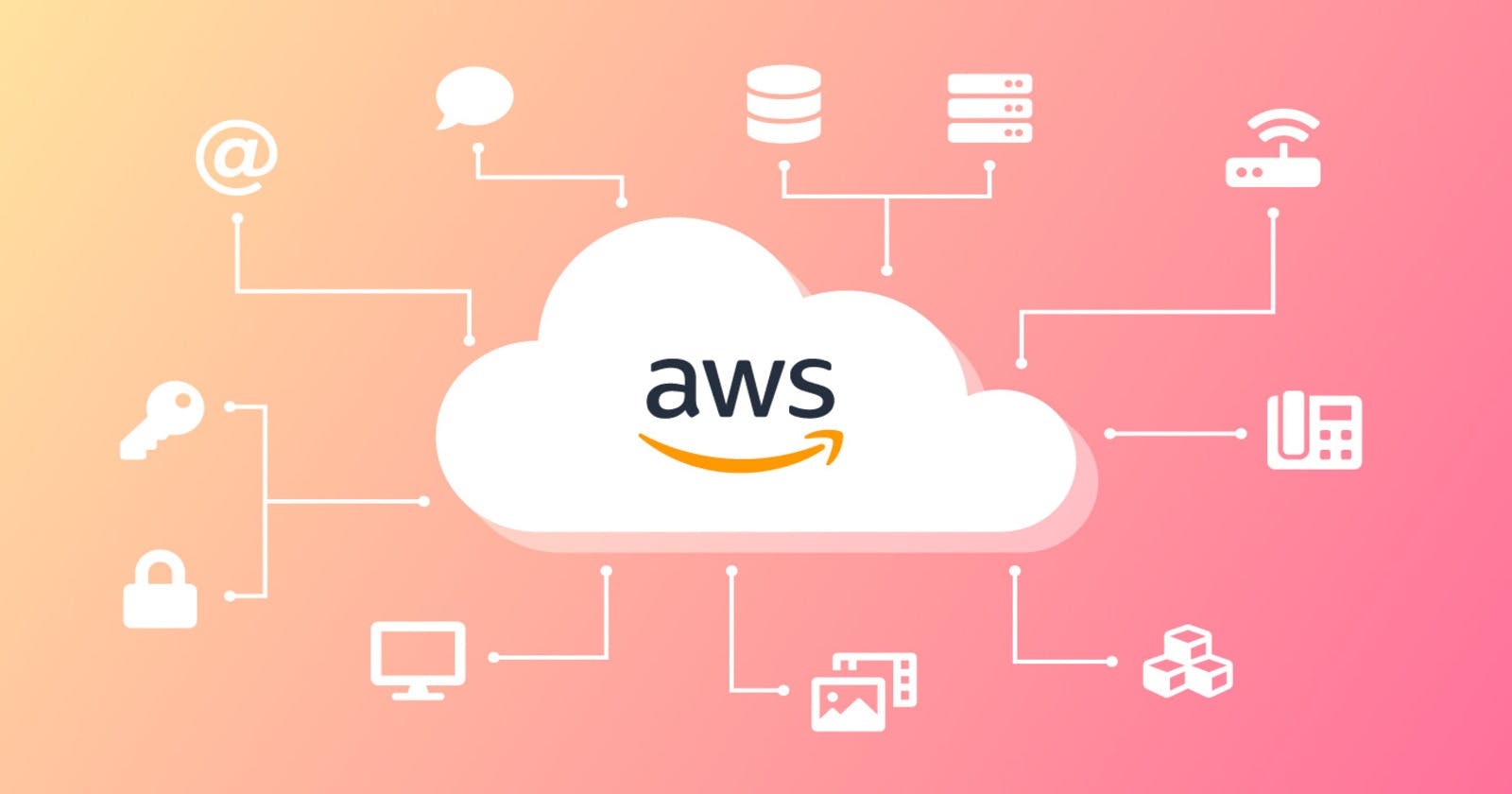What is AWS and why is it used?
A platform for cloud computing called Amazon Web Services (AWS) is made up of several remote computing services that Amazon.com makes available. These services offer a comprehensive range of services that enable customers to create, execute, and grow different sorts of applications and services on a worldwide network of secure, high-performance data centers from numerous locations of the world. Pay-as-you-go services like AWS allow consumers to only pay for the resources they use, which lowers the cost.
For a variety of uses, including storage, networking, databases, analytics, artificial intelligence, machine learning, mobile application development, the Internet of Things, security, and much more, AWS offers a vast range of services. This enables businesses and organizations to create and customize a wide range of products, services and infrastructure.
To manage, watch over, and protect the platform's infrastructure and applications, AWS also offers a range of tools and services. Encryption, multiple-factor authentication, and compliance certifications are just a few examples of the different security and compliance services included here. Additionally, AWS has a sizable and vibrant user and developer community that offers access to a plethora of information, tools, and best practices, making it simple to find answers to common issues and keep up with the most recent platform improvements.

Services Offered by AWS to End User for Better Standard of Living.
Compute, storage, databases, networking, analytics, artificial intelligence, security, and application services are just a few of the many services that Amazon Web Services (AWS) provides.
1) Compute services: These services enable customers to run code without provisioning or managing servers, as well as to start and manage virtual servers. AWS provides a variety of computing services, some of which are:
Resizable computation capacity in the cloud is made available through the web service known as Amazon Elastic Compute Cloud (EC2).
AWS Lambda is a serverless computing service that enables program execution without the need to set up or maintain servers.
2) Users can store and retrieve data in the cloud using storage services. AWS provides a variety of storage services, some of which are:
Scalable, fast, and inexpensive object storage solution provided by Amazon Simple Storage Service (S3).
A persistent block storage solution for use with Amazon EC2 instances is called Amazon Elastic Block Store (EBS).
Archival storage is made safe and reliable with Amazon Glacier.
3) Database services: With the help of these services, customers can build, run, and scale relational and NoSQL databases on the cloud. AWS provides several database services, such as:
A web service called Amazon Relational Database Service (RDS) makes it simple to set up, run, and scale a relational database in the cloud.
A consistent, single-digit millisecond latency at any scale is required for all applications, and Amazon DynamoDB provides a quick and adaptable NoSQL database service.
4) Networking services: These services let customers build and control cloud- based virtual networks. AWS provides a variety of networking services, such as:
A service that enables users to launch Amazon Web Services resources into a virtual network is known as Amazon Virtual Private Cloud (VPC).
AWS Direct Link: A service that enables customers to connect their on-premises data centers to AWS over a dedicated network.
5) Analytics services: These services enable cloud-based processing, analysis, and data visualization for users. AWS provides a variety of analytics services, such as:
A quick, easy, and affordable data warehousing provider is Amazon Redshift.
A quick, cloud-based business intelligence service is Amazon QuickSight.
6) Artificial intelligence services: With these services, users can enhance their apps with machine learning, natural language processing, and computer vision features. AWS provides a variety of artificial intelligence services, such as:
Amazon SageMaker is a fully-managed service that makes it simple and quick for programmers and data scientists to create, train, and use machine learning models.
An image and video analysis service powered by deep learning is called Amazon Rekognition.
7) Security services: These services enable users to protect their cloud-based data and applications. AWS provides several security services, such as:
Users can establish and manage users and permissions using the web service known as AWS Identity and Access Management (IAM).
An easy way to produce and manage encryption keys is with the AWS Key Management Service (KMS).
8) Application services: With the help of these services, customers can create and run a variety of apps and services on Amazon Web Services. AWS provides a variety of application services, such as:
A service that makes it simple to deploy, run, and grow web applications and services is AWS Elastic Beanstalk.
AWS Step Functions: A service that makes it simple to use visual workflows to coordinate the parts of distributed applications and microservices.

What Gives AWS an Edge Over Other Cloud Providers?
AWS has several advantages over other cloud providers, including a wide range of services, global infrastructure, scalability, cost-effectiveness, security and compliance, innovation, and a large and active community. Additionally, its pay-as-you-go pricing model cost management tools and ability to scale resources up or down give businesses a cost-effective and efficient solution. AWS also provides several security and compliance services and features, which makes it a reliable option for businesses looking for a secure and compliant environment. It's constant updating of new services and features and its large and active community of users and developers, make it an innovative and reliable option for businesses.
How to access AWS Cloud?
AWS can be accessed through:
AWS Management Console
AWS Command Line Interface (AWS CLI)
Command Line Tools
AWS Software Development Kits (SDK)
Query APIs
There is a detailed guide on how to install and use each of these options in the official documentation for further assistance visit to https://aws.amazon.com/.
Synopsis of AWS
A wide number of services are available through the cloud computing platform known as Amazon Web Services (AWS) to assist companies and organizations in developing, deploying, and scaling their applications and services. From databases, networking, and storage to machine learning, analytics, and security, AWS offers a wide range of tools and services that can be quickly integrated and tailored to suit the specific requirements of every enterprise. The flexibility of AWS's resources to scale up or down according to demand makes for a more economical and effective use of resources. As a result, firms may start small and expand as necessary without needing to make a large initial infrastructure investment.
